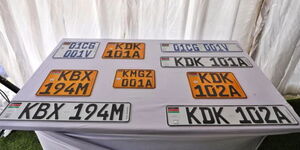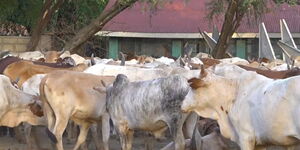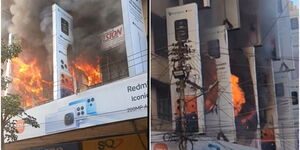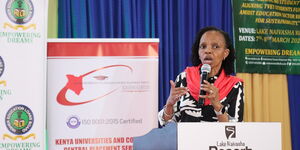Over the years, the water refilling business has grown to become one of the most popular ventures in Kenya, especially in urban areas.
With the business bringing modest returns to investors, many Kenyans have been rushing to set up water-refilling plants.
This prompted the Kenya Bureau of Standards (KEBS) to prepare a detailed list of requirements and conditions entrepreneurs must fulfill before dipping their feet into the business.
Kenyans.co.ke compiled a list of permits, licences and other required documents you should be aware of before starting a water bottling plant.
Licences/Permits
KEBS listed three mandatory certificates for Kenyans aiming to start a water refilling business. It should be noted that individual counties where the business is situated can demand an extra set of permits.
Before setting up your plant, you are required to apply for a public health certificate. This is provided by approved government facilities under the Ministry of Health.
You will also be required to provide medical certificates for all your staff. The service is also available in government health facilities at a cost of Ksh700.
If you are not using tap water for your plant, you will need an abstraction permit provided by Water Resource Management Authority (WARMA).
Other requirements and permits
You will need to submit a sample of your product to KEBS for testing to determine if it is safe for drinking. Thereafter, you will be mandated to demonstrate the production of a quality product by maintaining quality records as per the signed scheme of supervision and control.
After being given the KEBS mark of quality, the agency demansd that, “No water bottling company located in a residential set-up shall be granted a permit to use the standardisation mark.”
“Residential setups include buildings that possess residences on the upper floors and business premises on the ground level,” KEBS clarifies.
In an effort to make sure a trader consistently provides clean drinking water; KEBS asks for the establishment of clear mechanisms for dealing with customer complaints and proof of plant cleaning and maintenance.
KEBS also issued clear standards on how the building hosting the business should be set up. The building should contain stainless steel tables for production, an insectocuter and a first aid kit, a foot bath for the production area, and a hand washing facility with soap, sanitizer and a drying facility.
Additionally, the plant should have; a secured raw water storage tank, a window with screens to prevent the entry of flies, a fluorescent bulb for foreign matter inspection, protective clothing for staff and waterproof walls and floor (tiled).












